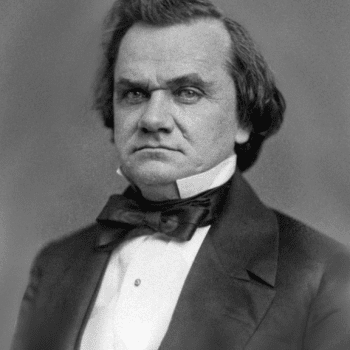 Some people invoke the current year as a sufficient argument. As in, “I can’t believe that it’s 2017 and we are still debating abortion.” Or, “It’s 2017! How can you believe the Bible?”
Some people invoke the current year as a sufficient argument. As in, “I can’t believe that it’s 2017 and we are still debating abortion.” Or, “It’s 2017! How can you believe the Bible?”
Nicholas Pell points out that merely giving the date does not prove anything. It does express the progressive worldview, that things are getting better and better, so that an idea from the present is assumed to be better than an idea from the past.
Pell observes that many people are conservatives, who tend to believe that the past in some ways at least is better than the present.
The blithe way progressives use the current year argument demonstrates that they assume everyone shares their worldview, that they are unaware of conservatives and are unfamiliar with their ideas.
From Nicholas Pell, It’s nearly 2017! Can we finally retire the current year as an argument for social change? – The Washington Post:
Looking back at 2016, it’s remarkable how often the year was invoked as an argument against its own events.
Take just a few examples. A CNN article implored: “It’s 2016. What’s with all the sexism?” A Los Angeles Times op-ed reminded readers, “It’s 2016 and the civil rights era hasn’t ended.” A post at Grist marveled, “It’s 2016, and we’re arguing about the constitutional validity of Roe v. Wade.” And Ellen DeGeneres scolded Georgia for its “religious liberty” bill with the tweet: “It’s 2016 and we’re still talking about equal rights for everyone. Georgia, you are better than this.” The tic was especially prevalent on the left but not exclusive to it: The libertarian magazine Reason wondered how school districts could ban “Huckleberry Finn” and “To Kill a Mockingbird” in light of what year it was.
As common as citing the current year has become, as a rhetorical technique it’s exceedingly feeble. Those who employ it frequently fail to formulate additional planks for their arguments. They seem to think it’s obvious why something in the current year should be an affront to our sensibilities. But they should realize that their notions of moral progress are hardly universal, and invoking the current year is a tone-deaf way to engage with anyone who doesn’t already agree with them.
[Keep reading. . .]
Illustration: Public Domain
 Some people invoke the current year as a sufficient argument. As in, “I can’t believe that it’s 2017 and we are still debating abortion.” Or, “It’s 2017! How can you believe the Bible?”
Some people invoke the current year as a sufficient argument. As in, “I can’t believe that it’s 2017 and we are still debating abortion.” Or, “It’s 2017! How can you believe the Bible?”















